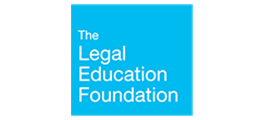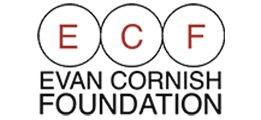Specialist Projects
We also run a number of specialist projects that we design and develop in conjunction with partner organisations.
Our recent examples are below.
Protect
The Protect Project, funded by the Paul Hamlyn Foundation’s Supported Options Initiative, began in 2012, and is a specialist project providing holistic legal services for undocumented young people. ‘Undocumented Young People’ are young people who live in the UK but have no evidence that they have a legal right to be here. Estimates indicate that there are likely to be as many as 120,000 UYP in the UK. Many of the UYP we work with were born in the UK or have lived here since early childhood. They may not have been aware, whilst growing up, that they were not British or had no permission to remain in the UK. The point at which they discover this is frequently one of crisis – bereavement, family breakdown, experience of abuse. It can be completely shocking to them, turning everything they thought they had known on its head and questioning their very identity. Others arrived as adolescents and applied for asylum on arrival but have reached the age of 18 and been refused further leave to remain in the UK. The difficulties faced by UYP are myriad, and they face multiple disadvantage. Without the ability to prove their entitlement to remain in the UK they may be unable to access accommodation, employment, social security or education in the formal sectors. As a result, their lives are frequently chaotic and unsafe; lived ‘under the radar’.
The Protect Project was created to address the complex needs of UYP, recognising their need for a multi-disciplinary team to address their complex multiple legal needs. Our many years of experience in working with UYP in relation to immigration issues has shown us that whilst UYP have multiple legal problems, they do not always feel able to cope with involvement with multiple legal advisers. Clients in this position tended to ‘fall through the cracks’ if they required legal advice on other issues. Going to different offices, meeting several different lawyers, and having to try to explain to one lawyer what another lawyer in a different discipline had advised them was frequently too much to cope with, despite their need to resolve these issues. We therefore designed a holistic service which included advice provided by specialist young people’s lawyers in relation to housing, social welfare, mediation and education, in addition to immigration representation all at the same venue.
The Protect Project is the first holistic legal service for migrant young people in the UK. The project was designed and staffed by lawyers experienced in their specific area of law, and with a particular specialism in working with children and young people. Our collective experience was vital in ensuring that the complex emotional, social and legal needs of our client were met in a way that enabled them to obtain the best outcomes in relation to all of their needs. The UYP we met had frequently been let down by adults and professionals in their lives, and developing relationships of trust was challenging for them. We therefore ensured that consistency was maintained for our clients by meeting with them as a team where necessary (reducing the number of journeys they had to make to our offices, and allowing them to meet new team members in the company of those who had already built a relationship of trust.
The Protect Project has had a very high success rate in terms of regularising the status of those clients who had no permission to remain. Importantly we also advised young people who thought they were undocumented, or had been told they were, but who were in fact British. We also identified refugee and trafficking claims from UYP who had not been aware that their experiences would be recognised in that way, and were able to make claims which allowed these young people to remain safely in the UK and rehabilitate from their experiences.
Our report on the Legal Needs of UYP is due to be launched in early 2017. Based on our cohort of UYP in the Protect Project from 2012 to date, this will be the first study of the legal needs of UYP and we hope will inform debate and campaigning around the needs this group of vulnerable young people, and show what they can achieve when given the chance to have a documented future.
MiTrust
MiTrust is a pop-up monthly advice surgery for Undocumented Young People (UYP) run by MiCLU in conjunction with The Prince’s Trust. This unique partnership provides a safe and confidential space for UYP identified by Prince’s Trust workers to enable them to access advice about their rights and legal options in relation to regularising their status. This provides us with an opportunity to identify and advise UYP who are receiving tailored support from The Prince’s Trust. Our significant experience of working with UYP has shown us that UYP are most able to listen to and follow advice where they are supported by specialist youth workers and advocates. This allows the UYP to discuss and revisit the advice with the support worker after receiving it, and to receive practical assistance with obtaining relevant information or evidence that is likely improve the prospects of an application succeeding.
Access to Justice
From April 2013 all but a small number of immigration (non-asylum) cases were removed from the scope of legal aid. From that point onwards UYP were not therefore entitled to legal aid to assist them in making applications to regularise their stay. Without advice and representation it is virtually impossible for UYP to make a successful application to remain in the UK. MiCLU has been instrumental in several challenges to the new legal aid regime, and has made significant contributions to reports on the impact of legal aid changes on access to justice. Legal challenges to the Legal Aid Agency’s Exceptional Case Funding scheme have resulted in significant changes to the ECF scheme, and it is now at least possible to obtain funding for cases involving UYP who wish to regularise their stay. MiCLU has therefore identified that it is essential to make a practical difference and enable as many UYP as possible to obtain publicly funded immigration advice.
With funding from the London Legal Support Trust we have therefore devised a training programme for pro bono lawyers working at City firms to create, in them, a resource for making applications for Exceptional Case Funding. Freshfields LLP have kindly agreed to partner us in piloting this project and provided the support of a team of young lawyers who will prepare applications for Exceptional Case Funding for UYPs accessing the MiTrust Advice Surgery. MiCLU lawyers will then represent the UYP in their applications for permission to remain in the UK.
Pioneering e-volunteering
In association with MiCLU (the Migrant and Refugee Children’s Unit), based at Islington Law Centre, a group of 4 law firms is working together to support the work of immigration and children’s rights lawyers through an online digital platform.
MiCLU is a specialist legal and policy hub that promotes the rights of migrant and refugee children throughout the UK. MiCLU carries out its work through an integrated work programme, including a mix of specialist representation, strategic litigation, policy, influencing and legal education work helping to create significant changes in law, policy and practice affecting this vulnerable group. The team is regularly called upon for expert advice, support, training and evidence from lawyers, statutory and non-statutory agencies, national and international NGOs and charities.
In an area where pro bono support can often prove challenging, the firms were committed to develop and pilot a research initiative to help support MiCLU’s work. Through a contact via one of the firms an online collaboration platform was donated to MiCLU by HighQ Solutions to help take forward an innovative legal research project. Lawyers are allocated research briefs by MiCLU and carry out desk-based research on key topics selected to inform and assist MiCLU’s work programme. Research briefs are circulated, allocated and collated via the online portal allowing lawyers and trainees to take on tasks regardless of time, distance and workload commitments whilst allowing MiCLU to manage the data and resources.
The great benefit of this virtual project for firms is that it allows us to make an active contribution in an area where legal aid cuts have made a huge impact and is accessible to all our domestic and international lawyers. Essential to the smooth running of this project is specialist engagement and project management from MiCLU, which has been pursuing a wider aim of linking and joining up litigation and policy advocacy strategies to mitigate the impact of legal aid cuts.
Firms can draw on their research resources and also have the benefit of sharing costs for training which is another way for us to support MiCLU who carry out all training for our lawyers. There is also great knowledge sharing and networking amongst the trainees and lawyers and a large pool of volunteers created so that the impact of chargeable work demands can be managed. The project is also very inclusive – volunteers can work individually, in pairs or larger groups and can remain involved in the project even if they are on secondment or working abroad.
The aim of the project is to eventually allow MiCLU to share resources with lawyers and immigration advisors more widely so that this vulnerable group can access the best possible representation in an area where access to justice and specialist representation has been severely impeded.









